Start Here
Homepage Bottom Form
We will get back to you as soon as possible.
Please try again later.
Emotional Recovery After a House Fire
🧠 Mental Health & Emotional Recovery Checklist
Created by House Fire Solutions – Supporting Homeowners Beyond the Rebuild
Recovering from a house fire isn’t just about repairing your home — it’s about healing emotionally, mentally, and spiritually.
The trauma of loss, displacement, and uncertainty can leave lasting effects.
This checklist helps you navigate emotional recovery
step by step, providing guidance, structure, and hope during an overwhelming time.
❤️ 1. Immediate Emotional Support (First 48 Hours)
These steps help you stabilize emotionally right after the fire.
- Take deep breaths — remind yourself and your family: “We are safe now.”
- Find a calm, secure place to stay temporarily (family, hotel, shelter).
- Contact trusted family members or friends for emotional grounding.
- Avoid making major decisions while in shock — focus only on essentials.
- If feeling overwhelmed, call a local crisis line or mental health helpline.
- Write down your thoughts or feelings — journaling can help process trauma.
- Let children or loved ones express emotions freely — listen without correcting.
- Avoid isolation; being around supportive people is key in the first 48 hours.
💡 Pro Tip: Don’t rush emotional recovery — shock can delay grief and stress for several days.
🕊️ 2. Processing Loss & Grief (First 1–2 Weeks)
Emotional recovery starts when you begin processing what’s been lost.
- Acknowledge your grief — it’s normal to mourn your home and belongings.
- Cry, talk, or share stories about what you lost — emotional release heals.
- Keep a “gratitude list” of small positives (like safety, community, family).
- Create space for mourning, but balance it with small, grounding routines.
- Avoid suppressing emotions — it can lead to anxiety or physical symptoms.
- If nightmares, guilt, or intrusive memories arise, contact a trauma counselor.
- Let children draw or talk about what happened — it helps them process loss.
- Consider joining a local fire recovery support group.
💡 Tip: It’s not “just stuff.” Losing a home changes your sense of security — it’s valid to grieve.
🧍♀️ 3. Family & Relationship Support
Fire recovery can strain relationships — protect your support systems.
- Schedule family check-ins to talk about feelings and progress.
- Divide practical tasks (calls, paperwork, childcare) to reduce overwhelm.
- Avoid blaming or “what if” conversations — focus on teamwork and healing.
- Keep communication gentle — everyone heals at a different pace.
- If tensions rise, take short breaks and reconnect later.
- Seek family therapy or counseling for persistent stress or irritability.
- Encourage everyone, especially children, to maintain some routine and normalcy.
- Practice forgiveness — toward yourself, others, and the situation.
💡 Pro Tip: Trauma recovery isn’t linear — some family members may seem “fine” while others are still struggling.
💬 4. Professional Help & Counseling
Therapy and professional support can accelerate emotional healing.
- Reach out to a licensed trauma counselor or psychologist familiar with fire or disaster recovery.
- Ask your insurance company if mental health sessions are covered under disaster recovery benefits.
- Try teletherapy if transportation or temporary housing makes in-person sessions difficult.
- Consider EMDR (Eye Movement Desensitization and Reprocessing) therapy for trauma.
- Check with local community centers, Red Cross, or FEMA — many provide free counseling.
- If anxiety or depression worsen, contact your doctor for medication support.
- Explore family or group therapy if collective grief is affecting everyone.
💡 Tip: It’s okay to need professional help — trauma recovery is a sign of strength, not weakness.
🌙 5. Self-Care & Daily Healing Routines
Rebuilding your home starts with rebuilding your daily peace.
- Prioritize sleep — set a consistent bedtime, avoid screens before bed.
- Eat regularly — even small, nutritious meals help regulate stress hormones.
- Drink water — dehydration can worsen anxiety and fatigue.
- Take short walks outside for sunlight and grounding.
- Limit news or social media about the fire — protect your mental space.
- Practice mindfulness or prayer daily.
- Keep a small notebook for positive thoughts or daily accomplishments.
- Celebrate even small wins (finding documents, making progress, etc.).
💡 Pro Tip: Routine helps your brain rebuild safety — start simple and be patient with yourself.
🪷 6. Mindfulness, Relaxation, & Stress Reduction
Techniques to help your mind and body recover from constant alertness.
- Try breathing exercises: Inhale for 4 seconds, hold 2, exhale 6.
- Practice grounding: name 3 things you can see, hear, and touch.
- Listen to calming music or nature sounds.
- Use apps like Calm, Insight Timer, or Headspace for guided relaxation.
- Stretch or practice gentle yoga.
- Journal your emotions without judgment.
- Practice visualization — imagine your future home safe, bright, and rebuilt.
💡 Tip: The goal isn’t to erase stress — it’s to teach your body that safety has returned.
🧩 7. Community & Social Connection
Isolation can slow recovery — rebuilding community helps rebuild hope.
- Join a local support group for fire survivors.
- Attend community rebuilding events or meet neighbors going through recovery.
- Volunteer when you’re ready — helping others restores purpose.
- Accept offers of help — it builds connection and lightens the load.
- Share your story (if you’re ready) — it can inspire others and validate your healing.
💡 Pro Tip: Humans heal faster in community — connection rebuilds resilience.
🕯️ 8. Spiritual and Inner Healing
Reconnecting with meaning helps you rebuild from within.
- Revisit your faith, meditation, or spiritual practice if it brings comfort.
- Talk with a pastor, chaplain, or spiritual advisor if you’re questioning “why.”
- Light a candle or plant a flower in remembrance of your old home.
- Write a “goodbye letter” to what was lost and a “hello” to your new chapter.
- Read books or devotionals about resilience and renewal.
- Focus on gratitude for survival, strength, and second chances.
💡 Tip: Healing isn’t forgetting — it’s finding peace within what changed.
🪞 9. Rebuilding Identity & Confidence
Loss can shake your sense of self — it’s time to rediscover who you are.
- Make a list of your personal strengths shown during recovery.
- Reconnect with hobbies or passions — creativity heals trauma.
- Redefine your goals post-fire (new home, lifestyle, or perspective).
- Create a “vision board” for your rebuilt life.
- Take pride in every small achievement — rebuilding takes courage.
- Surround yourself with uplifting, encouraging people.
💡 Pro Tip: You survived what you feared most — every step forward is proof of your resilience.
🌈 10. Long-Term Emotional Maintenance
Healing continues long after your home is rebuilt.
- Schedule regular check-ins with a therapist or counselor.
- Keep up healthy habits — sleep, exercise, connection.
- Continue attending support groups or community gatherings.
- Recognize triggers (smells, sounds, anniversaries) and plan calming responses.
- Review your recovery progress every few months — celebrate growth.
- Consider mentoring other families going through fire recovery when ready.
💡 Pro Tip: Recovery isn’t about returning to who you were — it’s about growing into who you’ve become.
💬 Final Reflection
“You didn’t just survive a fire — you’re rising from it.
Healing is not about forgetting your past; it’s about reclaiming your peace.”
Our Team Helps You Navigate Insurance, Restoration, and Rebuilding
It is a long established fact that a reader will be distracted by the readable content of a page when looking at its layout.
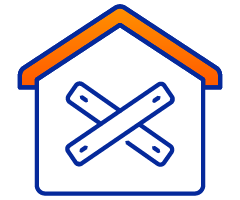
Board-Up
Our Network of Board Up Specialist Will Secure your property fast
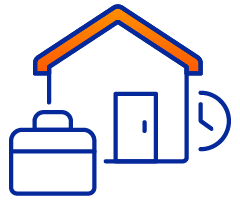
Temp Housing
We'll Help You Find Safe Shelter while you recover
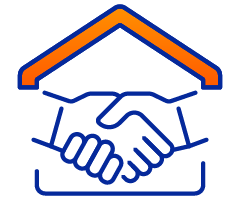
Public Adjusters
Our Network of Fire Damage Adjusters Will Fight Help for a fair insurance payout

Investors
Our Partner Specializes in Buying Fire Damaged Homes So you Can Sell your home as-is

Content Cleaning
Restore what matters most
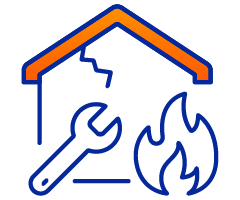
Restoration
Bring your home back to life
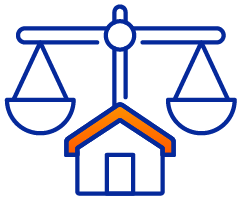
Attorneys
We have a network of Protect your rights and claims

Mental Health
Support for you and your family
Want To See If We Can Help You
If you'd like to speak with us today about purchasing Social Security, Personal Injury, Workers' Compensation or Employment Law Leads.
Homepage Bottom Form
We will get back to you as soon as possible.
Please try again later.